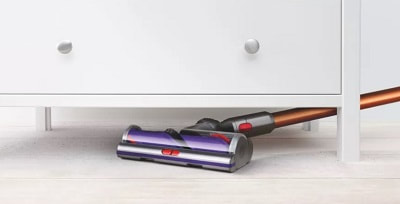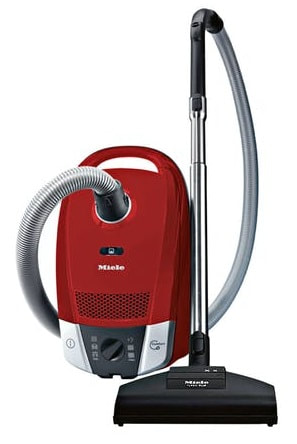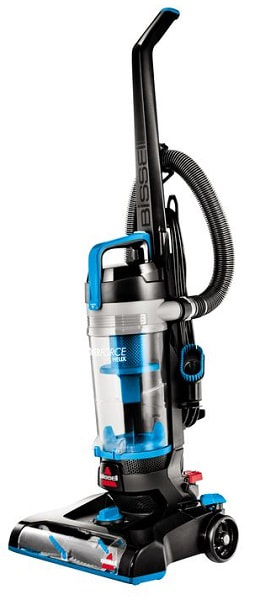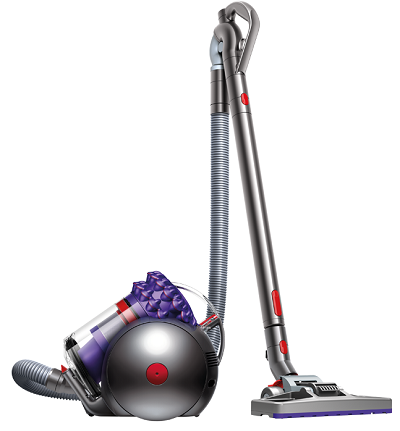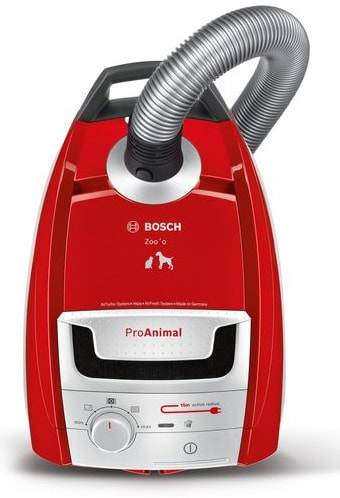Best Vacuum Cleaners 2024: The Definitive New Zealand Consumer Guide
Our guide explains everything you need to know to buy the right vacuum cleaner at the best price.
Updated 2 January 2024
Before you shop for a vacuum, think about your home. What types of flooring will you clean?
This will give you an idea of the type of vacuum you need. For example, if you need portability because your home has a lot of stairs, canister vacuums are a great option. If you want an all-around vacuum that can clean anywhere in your home, an upright may be a better choice.
Our Vacuum Cleaner Buying Guide Covers:
- Do you have wall-to-wall carpet?
- Are there a lot of stairs?
- Do you have mostly hardwood floors?
- Do you have kids constantly spilling things?
This will give you an idea of the type of vacuum you need. For example, if you need portability because your home has a lot of stairs, canister vacuums are a great option. If you want an all-around vacuum that can clean anywhere in your home, an upright may be a better choice.
Our Vacuum Cleaner Buying Guide Covers:
Vacuum Cleaner Features to Consider
- No bag – Do you not want to bother with replacing vacuum bags? Bagless vacuums have a container you detach and empty. You don’t have to buy vacuum bags, but if you have allergies or dust issues, bagless vacuums don’t contain the allergens as well as bag vacuums do. The dust particles may float back into the air, causing more allergy issues.
- Bag – If you have pets or allergies, bag vacuums are a better option. While you have to buy and replace the bags, the dust, dander, and pollutants picked up remain sealed in the bag. They don’t get released back into the air when you empty the canister.
- Multiple surface options – If you have carpet and hardwood, or even high and low carpets, look for a multi-surface vacuum for an all-in-one product. If you are moving the vacuum around the house a lot, look for a lightweight version to make it easier on yourself.
- Air watts – Look for air watts of at least 200; this should provide ample power and suction to clean up even the smallest particles, including dusty and pet dander.
- Attachments – Will you clean more than your carpets? Look for attachments for the surfaces you’ll clean. Think about furniture, tall objects you’ll dust with the vacuum, and even tight corners. The right attachments make it easy to clean just about any area in your home.
- Filters – Do you or someone in your house suffer from allergies? A HEPA filter is a must. This traps dust, dander, pet hair, pollen, and other small particles, removing them from the carpet. Make sure the filter is HEPA-certified and not ‘HEPA like'.
Other relevant considerations:
- How often will you vacuum? If you vacuum daily, a lightweight vacuum provides more portability. It doesn’t have as much power, but if you vacuum frequently, you don’t need it. If you vacuum weekly, or less often, you’ll need a more powerful upright vacuum that has more power and suction.
- Do you or a family member have allergies? Vacuuming without a HEPA filter only pushes the allergens around your home. You need a HEPA certified vacuum that eliminates all allergens for easier breathing. It’s worth the investments if you suffer from allergies.
- Do you have pets? Look for vacuums with hose attachments that specifically eliminate pet hair and dander. You may want a more powerful vacuum too – look for those rated to clean up pet hair and pet messes. Many pet owners prefer bag vacuums to seal off the pet hair once removed from the carpet.
- Do you need a quiet vacuum? All vacuums make some noise, but if you have an aversion to noise or live in a crowded area, you may care about the noise level. Check the vacuum’s decibel rating. For comparison, a decibel rating in the 70s will sound as loud as a garbage disposal, and a rating below 70 will be rather quiet.
- How portable do you need the vacuum? Are you climbing up and down the stairs or lugging it around a sizeable house? Do you need to carry it or roll it? Some vacuums weigh as much as 20 pounds or more, so pay attention to the weight.
What Types of Vacuums are Available?
Now that you know the features to consider, let’s look at the six vacuum types available:
Upright Vacuum
Pros:
Cons:
|
Canister Vacuum
Pros:
Cons:
|
Stick Vacuums
Pros:
Cons:
|
Handheld Vacuum
Pros:
Cons:
|
Pet Vacuums
Pros:
Cons:
|
Robot Vacuums
Pros:
Cons:
|
The Top Vacuums Available in New Zealand Right Now
Miele C2 Compact Vacuum Cleaner
|
Bissell Powerforce Helix Bagless Upright Vacuum
|
Dyson Big Ball Origin Vacuum Cleaner
|
Bosch Zoo'o ProAnimal Bagged Vacuum Cleaner
|
Buying a Vacuum Cleaner - Final Thoughts and Tips
- Every household has different vacuum needs. Don’t assume it’s a one-size-fits-all purchase.
- Think of your flooring and what you need to vacuum, whether dust, pet hair, or debris.
- If you’re constantly cleaning up after a child, a lightweight vacuum that’s easy to whip around the house is great.
- If you’re looking for a heavy-duty tool that cleans the entire home, you’ll want a sturdier upright that has generous power and suction.
- A vacuum is an investment. Do your research and find the vacuum that suits your needs. Many retailers sell vacuums - Noel Leeming, Harvey Norman and The Warehouse are good starting points.
Frequently Asked Questions
What types of vacuum cleaners are there?
Several types of vacuum cleaners include upright, canister, stick, handheld, and robot vacuums. Each type has advantages and is suitable for different cleaning needs, as outlined above.
How do I choose the right vacuum cleaner for my home?
Consider the size and layout of your home, the types of floors and surfaces you need to clean, and any specific features you may need, such as a HEPA filter for allergies or a pet hair attachment.
How often should I replace the filter on my vacuum cleaner?
The frequency of filter replacement depends on the filter type and the vacuum cleaner usage. Some filters can be washed and reused, while others need to be replaced every few months or more frequently. Consult the manufacturer's recommendations or the owner's manual for specific guidance.
Can I use my vacuum cleaner on all types of floors?
Most vacuum cleaners are designed to work on various surfaces, including carpets, hardwood floors, and tiles. Some models may have specific attachments or settings for different floor types.
How do I maintain and care for my vacuum cleaner?
To keep your vacuum cleaner in good working order, regularly empty the dustbin or bag, clean or replace the filter, and remove any debris or tangles from the brush roll. Follow the manufacturer's recommendations for specific maintenance and care instructions. This useful guide has suggestions to extend the life of a vacuum cleaner (and other appliances).
Do vacuum cleaners come with a warranty?
Yes, most vacuum cleaners come with a manufacturer's warranty that covers defects in materials or workmanship. The length of the warranty and the specific terms and conditions vary by model and manufacturer.
How much should I expect to pay for a vacuum cleaner?
The price of a vacuum cleaner can vary widely based on the type, features, and brand. You can find basic models starting at around $100, while high-end models can cost $500+ or $1,000+.
How do I store my vacuum cleaner when it is not in use?
Store your vacuum cleaner in a dry, well-ventilated area when it is not in use. Ensure the cord is fully unwound and empties the dustbin or bag before storing the machine. Avoid storing the vacuum cleaner in a damp or humid location, as this can lead to mould or mildew growth.
Should I buy a second-hand vacuum cleaner from Trade Me/Facebook Marketplace?
Buying a secondhand vacuum cleaner can be a cost-effective way to get a good quality machine at a lower price. However, there are some things to consider before making a purchase:
Overall, buying a secondhand vacuum cleaner can be a good option if you are on a tight budget and are willing to take on the risk of potential repairs or maintenance, or the vacuum performing below expectations. If you have the means to buy a new vacuum cleaner, it may provide greater peace of mind and a longer warranty period.
- Condition: Ensure the vacuum cleaner is in good working order and has no visible damage or wear. Test it out to ensure it has good suction, and all of the attachments are working properly.
- Age: An older vacuum cleaner may not have the same performance or features as a newer model. It may also be more prone to breakdowns or require more maintenance.
- Warranty: Secondhand vacuum cleaners may not come with a warranty, so you'll need to pay for any repairs or maintenance out of pocket.
- Safety: If the vacuum cleaner is electric, ensure it has been properly tested and is safe to use. Avoid using a vacuum cleaner with frayed cords or other visible damage.
Overall, buying a secondhand vacuum cleaner can be a good option if you are on a tight budget and are willing to take on the risk of potential repairs or maintenance, or the vacuum performing below expectations. If you have the means to buy a new vacuum cleaner, it may provide greater peace of mind and a longer warranty period.
Related guides

